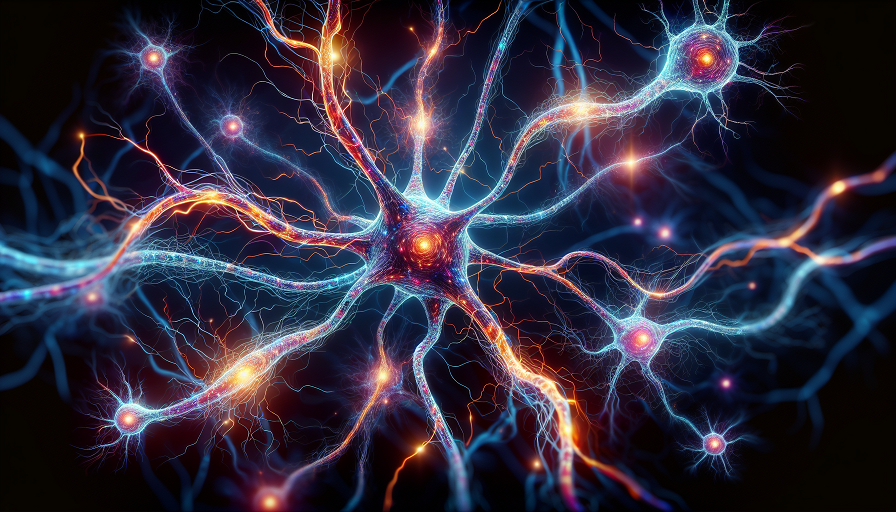
Have you ever sat down to write and found yourself staring at a blank page, feeling unable to form coherent thoughts or muster any creative energy? If so, you might be experiencing either brain fog or a creative block. While these terms may sound similar, they arise from different sources and require different solutions. One potential remedy gaining attention is the use of nootropics—natural or synthetic substances that can potentially enhance brain performance.
Contents
Understanding Brain Fog and Creative Block
When trying to pinpoint why you can’t string together two sentences, it’s essential to understand whether you’re dealing with brain fog or a creative block. Both conditions can hinder your ability to write, but they do so in different ways.
What Is Brain Fog?
Brain fog is not a medical condition but rather a term used to describe a feeling of mental fuzziness or a lack of mental clarity. Imagine trying to see through a foggy window; everything seems blurred and indistinct. Brain fog can leave you feeling forgetful, unfocused, or just plain mentally exhausted. You might find that basic tasks feel unusually difficult, and concentration is akin to wading through thick mud.
Common causes of brain fog can include:
- Lack of sleep
- Poor diet
- Stress
- Hormonal changes
- Certain medications or medical conditions
If any of these factors are affecting you, your brain could quite literally be too tired to function at its best.
What Is a Creative Block?
Creative block, on the other hand, is specifically related to your ability to generate new ideas or engage in creative tasks. Unlike brain fog, creative blocks are less about overall mental clarity and more about a specific interruption in the flow of imagination and inspiration. This can happen to anyone, from novelists and poets to artists and musicians.
Common causes of creative block can include:
- Self-doubt or fear of failure
- Overwhelm from too many ideas
- Perfectionism
- Exhaustion from overworking
While both conditions can be frustrating, understanding whether you’re dealing with brain fog or a creative block can help guide you to the right solution.
Exploring Nootropics
So, what are nootropics? These substances, often dubbed “smart drugs,” aim to boost cognitive functions such as memory, creativity, and even motivation. Although the term may sound futuristic, people have used certain foods and herbs for cognitive enhancement for centuries.
Types of Nootropics
Nootropics can be categorized into two main types: natural and synthetic.
Natural Nootropics: These include herbs, vitamins, and other natural substances. Examples are:
- Ginkgo Biloba: Known for its potential to improve focus and memory.
- L-Theanine: Found in green tea, it may enhance relaxation and focus.
- Curcumin: Derived from turmeric, this may boost brain function and reduce inflammation.
Synthetic Nootropics: These are man-made compounds designed to improve cognitive performance, such as:
- Modafinil: Originally used to treat narcolepsy, some claim it enhances focus and alertness.
- Piracetam: Often touted for its potential to improve memory and awareness.
How Nootropics Could Help
By selectively targeting different aspects of brain health, nootropics might be able to alleviate symptoms of brain fog or help overcome a creative block. Here’s how they could potentially make a difference:
- Enhanced Focus: Nootropics like caffeine and L-theanine can help sharpen mental clarity and concentration, particularly when brain fog makes it challenging to focus on writing tasks.
- Improved Mood and Motivation: Natural nootropics such as Rhodiola Rosea and Ashwagandha have adaptogenic properties, which may help reduce stress and improve mood. This can be particularly beneficial if stress or anxiety is underpinning your creative block.
- Boosted Creativity: Some nootropics might spur creativity by enhancing connections between neurons in the brain. For instance, Lion’s Mane Mushroom is linked to the production of nerve growth factor, which could promote new brain cell growth.
Implementing Nootropics into Your Routine
Before diving headfirst into the world of nootropics, it’s crucial to understand that not all nootropics will work the same for everyone. The benefits and side effects can vary from person to person.
Consulting with a Healthcare Provider
Speaking with a healthcare professional can provide personalized insights tailored to your individual health needs. Since nootropics can interact with medications or have side effects, it’s wise to get professional guidance.
Starting Slow
If you decide to incorporate nootropics into your routine, start with one at a time. This approach allows you to gauge its effects and adjust the dosage or type as needed. It’s like finding the right pair of shoes—a bit of trial and error might be necessary.
Listening to Your Body
As you experiment with nootropics, pay close attention to how your body and mind respond. Keeping a journal can help you track any changes in focus, creativity, and overall mental clarity. This can help determine whether the nootropics are having a positive impact on your brain health and writing process.
Other Strategies to Combat Brain Fog and Creative Block
While nootropics offer a promising avenue, they are not a magic bullet. Combining them with other strategies might be the most effective approach to overcoming brain fog and creative block.
- Establish a Routine: Having a regular writing schedule can train your mind to be ready to write at the same time each day.
- Take Breaks: Short breaks during writing sessions can help refresh your mind and reduce mental fatigue.
- Physical Activity: Exercise is a proven mood booster and can help improve concentration and creative thought processes.
- Mindfulness Practices: Techniques such as meditation or yoga can enhance focus, decrease stress, and promote mental clarity.
Navigating brain fog and creative block can be challenging, but by understanding their roots and exploring new solutions like nootropics, you have a better chance of rekindling your writing spark. Whether you’re crafting the next bestselling novel or jotting down some personal reflections, having the mental tools to express yourself is invaluable. With the right combination of strategies, you might just find yourself writing with renewed enthusiasm. Happy writing!

